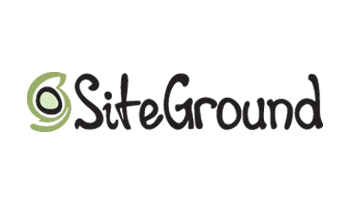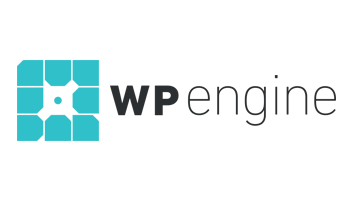Top Ten Best Alternatives to WordPress – Compared – Which to Choose and Why!
- By
- Last updated:
- Leave your thoughts
If building a website is anywhere on your radar, WordPress is likely to be the first platform you check out. But are there any viable alternatives?
First, why would anyone need WordPress alternatives? Isn’t WordPress all great?
Well, there can be plenty of reasons, which usually fall into a few categories:
- 🤕 WordPress isn’t the most user-friendly platform for a complete beginner — someone who’s never owned a website but who still wants to be able to do everything on their own.
- ⚙️ WordPress isn’t an all-in-one solution — it has many moving parts, especially once you start adding plugins to get your desired functionality.
- 🛒 WordPress isn’t optimized out of the box to handle some of the more specialized types of websites, such as eCommerce stores.
- ℹ️ WordPress is built on top of PHP, which isn’t always the perfect web technology for all tasks and purposes.
In this post, I’ll compare eleven of the best WordPress alternatives, and highlight what makes each of them better for various tasks and purposes.
It’s all here: General website building tools, all-in-one online platforms, content management systems, eCommerce platforms, and more. I’ll cover their basic features, their pros and cons, and how each one compares with WordPress.
Whether you’re a beginner to websites and website building or a fairly web-savvy enthusiast, there’s something here for everyone.
Table of Contents
(Note: If you’re in a hurry, there’s a detailed summary table at the bottom of the article.)
Wix
Although not the first tool that comes to mind when thinking of WordPress alternatives, Wix pretty much delivers on all of the features the average WordPress user needs.
It’s an all-in-one platform, meaning everything happens in one place. There’s no software to install, no web server you have to buy elsewhere and no themes you have to find on third-party sites.
After you sign up for a Wix account, you’ll get access to a step-by-step setup wizard that takes you by the hand, shows you how everything works and even builds the first version of your website for you with the help of AI.
Your website is then fully customizable, and you can also add an eCommerce module to the mix — plus there are add-ons for any missing features you may find on other websites.
- In a nutshell: All-in-one website platform and builder
- Free version: Yes
- Price: Premium plans from $13 a month
Important Features 🧰
- Fully hosted solution: Yes
- Software to self-install: No
- Extensions: Yes (Wix App Market)
- Built-in visual builder with drag-and-drop: Yes
- Free subdomain: Yes (all plans;
YOURSITE.wixsite.com) - Free custom domain: Yes (on yearly subscriptions)
- Ready-made designs: Yes (700-plus)
- Optimized for mobile: Yes
- Customer support: Yes
- Blog module: Yes
- eCommerce store: Yes
- Social media tools: Yes
- Access to source code: No
Editor’s Rating ⭐
- Ease of use: 4.5/5
- Customization UI: 5/5
- Design: 5/5
- Price: 4/5
What Makes This a Great WordPress Alternative? 👍
Wix is the perfect choice if you’re looking for a website platform where everything takes place under one roof, so to speak.
With Wix, you don’t have to buy your hosting, domain and website software separately, and then try to tie it together. Wix handles all of that for you — all within Wix.com.
This is also a website platform that’s easier to use than WordPress, especially for beginners and first-time website owners.
Overall, Wix is perfect for:
- users who want to build and customize a website on their own
- users (both business and personal) who don’t have a budget for a custom-built website
- users with no prior experience.
Why You May Not Want to Use This WordPress Alternative 👎
Wix is probably not your solution if you’re looking for something that’s very similar to WordPress on a structural level, but just handles certain things differently.
Wix is an entirely different type of platform. It’s hosted, which means you just go to Wix.com, sign up for an account and you’re good to go. No need to install Wix on your own web server.
This is probably also not a WordPress alternative for you if you want to retain full control of your site, as you do with WordPress. Finally, Wix is going to be more expensive than WordPress to run basic websites.
- For an in-depth comparison of Wix and WordPress, take a look at another post of ours: Wix vs WordPress — Choosing The Right Platform.
Joomla
Joomla is the original WordPress alternative. In other words, it’s the main piece of software that comes to mind when considering alternatives to WordPress that run in a similar way.
Joomla is a content management system (CMS) much like WordPress, which means it gives you tools for effective creation and then managing whatever content you want to host on your website.
It provides a ton of functionality right out of the gate, and can be used to run any type of website — from simple brochures to blogs, eCommerce, informational or official sites (e.g. gov sites), and even social networks.
- In a nutshell: Software that runs your website with extensive content management functionality
- Free version: Yes
- Price: $0 for Joomla itself plus web hosting fees
Important Features 🧰
- Fully hosted solution: No
- Software to self-install: Yes (Joomla needs a PHP-enabled server to run)
- Extensions: Yes (around 6,000 official extensions)
- Built-in visual builder with drag-and-drop: No (traditional content editing — similar to a Word document)
- Free subdomain: No
- Free custom domain: No
- Ready-made designs: Yes (there’s a third-party market for Joomla templates, albeit not as large as WordPress’s)
- Optimized for mobile: Yes (depends on the template you use)
- Customer support: No
- Blog module: Yes (not as good as WordPress’s)
- eCommerce store: Yes
- Social media tools: Yes
- Access to source code: Yes (open source)
Editor’s Rating ⭐
- Ease of use: 3.5/5
- Customization UI: 3/5
- Design: 3/5
- Price: 5/5
What Makes This a Great WordPress Alternative? 👍
Joomla is a great choice if you’re looking for another open-source CMS to replace WordPress. In most cases, you’re going to be able to install Joomla on the same web server (unless you’ve been running some specialized WordPress hosting, such as WP Engine), which means you won’t have to change your infrastructure too drastically.
Joomla is also your solution if you require better user and media management than what WordPress gives you. With Joomla, you can upload and manage any type of media files. Plus, there are also built-in SEO and banner management tools.
The final thing Joomla has going for it vs WordPress is its multilingual capability (you can manage the languages used on your site). With WordPress, this is only available through plugins.
Overall, Joomla is perfect for:
- sites with lots of content
- advanced web projects that require good content management
- gov sites, educational sites, social networks, corporate sites, large publishing houses.
Why You May Not Want to Use This WordPress Alternative 👎
Joomla was once an extremely popular and influential platform. Unfortunately, this is no longer the case, and Joomla has lost part of its past appeal. The main problem with considering it a WordPress alternative is it’s much more difficult to get started with if you’re not already a semi-experienced developer.
Joomla isn’t an ideal beginner’s tool, and also doesn’t offer the same number of extensions and templates/designs as WordPress.
Overall, when working with Joomla, you’ll have to rely much more on your coding skills.
Drupal
Although I’m sure I’ll make some ‘Team Drupal’ members rather irritated by saying this, I consider Drupal to be a platform that’s very similar in principle to Joomla.
In other words, if you don’t like Joomla as your WordPress alternative for whatever reason, you should give Drupal a go.
Drupal is perhaps the most technical and the most powerful of the top CMS platforms — but this also means it requires the most skill to use it to its full potential.
- In a nutshell: Software that runs your website, with extensive content management functionality
- Free version: Yes
- Price: $0 for Drupal itself, plus web hosting fees
Important Features 🧰
- Fully hosted solution: No
- Software to self-install: Yes (Drupal needs a PHP-enabled server to run)
- Extensions: Yes (around 50,000 official modules)
- Built-in visual builder with drag-and-drop: No (traditional content editing — similar to a Word document)
- Free subdomain: No
- Free custom domain: No
- Ready-made designs: Yes (there are around 3,000 official themes available)
- Optimized for mobile: Yes (depends on the theme you use)
- Customer support: No
- Blog module: Yes (not as good as WordPress’s)
- eCommerce store: Yes
- Social media tools: Yes
- Access to source code: Yes (open source)
Editor’s Rating ⭐
- Ease of use: 3/5
- Customization UI: 3/5
- Design: 3/5
- Price: 5/5
What Makes This a Great WordPress Alternative? 👍
Like Joomla, Drupal is a great WordPress alternative as long as you’re ready to put in the hours required to work on your site. If the website you’re creating is fairly non-standard, you’ll probably spend a lot of time tweaking source code or building features from the ground up.
Drupal does many things well, one of them being the platform’s approach to security, user and permission management, data encryption and website performance. It also integrates with many third-party tools for marketing, sales, SEO, reporting and more.
Lastly, Drupal is known for its great multilingual capability. With WordPress, this is only available through plugins.
Overall, Drupal is perfect for:
- advanced web projects that go above the standard definition of what we normally understand as a website.
Why You May Not Want to Use This WordPress Alternative 👎
Drupal isn’t the WordPress alternative for you if you’re looking for a platform to run a basic blog or site.
Moreover, Drupal doesn’t have a lot to offer in the realm of themes. The official library isn’t that large compared with WordPress’s, and the third-party market isn’t too huge either.
Lastly, Drupal has a learning curve. Building a good-looking, quality site from start to finish takes time. The learning curve of WordPress is much smaller.
Squarespace
Similar to Wix, Squarespace isn’t the most straightforward WordPress alternative, as there are significant differences between the platforms and the way they work. Still, from an end user’s point of view, they can both handle the same task — let you build a functional website.
Squarespace is an all-in-one website platform, meaning there’s no software to install. You just sign up for an account at Squarespace.com, and then you’re taken through the steps of getting a website built — the DIY way! It’s a great tool for website creation, whether you need a blog, an eCommerce store, a portfolio site or all of the above.
In short, Squarespace does it all — it houses your website, takes care of the software running it and allows you to focus on creating content.
- In a nutshell: All-in-one website platform and builder
- Free version: No (but there’s a free trial)
- Price: From $12 a month (when paid annually) or from $16 (when paid monthly)
Important Features 🧰
- Fully hosted solution: Yes
- Software to self-install: No
- Extensions: Yes
- Built-in visual builder with drag-and-drop: Yes
- Free subdomain: Yes
- Free custom domain: Yes
- Ready-made designs: Yes
- Optimized for mobile: Yes
- Customer support: Yes
- Blog module: Yes
- eCommerce store: Yes
- Social media tools: Yes
- Access to source code: No
Editor’s Rating ⭐
- Ease of use: 5/5
- Customization UI: 5/5
- Design: 5/5
- Price: 4/5
What Makes This a Great WordPress Alternative? 👍
Everything that made Wix a great alternative to WordPress makes Squarespace one as well. Both Squarespace and Wix are similar in how they approach the task of website building and how they deliver their tools to the user.
That being said, Squarespace is perhaps even easier to use than Wix, making it the ultimate tool for beginners and users with no experience who still want to build their websites all on their own.
The site builder in Squarespace is straightforward and intuitive to use; it takes you by the hand through the entire site-building process. To craft a site on WordPress, you have to be ready to get your hands dirty at least a tiny bit.
Squarespace is also the leader of the design game among website builders. All designs/themes in its catalog are modern, great-looking and optimized for readability.
Overall, Squarespace is perfect for:
- users who value ease of use over things such as open-source code
- businesses, artists and hobbyists who want to build a professional site themselves, and would prefer not to spend a lot of money doing it
- users with no prior experience.
Why You May Not Want to Use This WordPress Alternative 👎
Depending on the type of user you are, some of Squarespace’s advantages may seem like disadvantages to you — looking at it through the lens of WordPress.
Squarespace isn’t open source, and you can’t install any third-party extensions on it. You also can’t custom-code anything. Last, but not least, Squarespace will be more expensive if all you want is to run a basic website.
- For an in-depth comparison of Squarespace and WordPress, take a look at another post of ours: SquareSpace vs WordPress — Choosing the Right Platform.
👉 Squarespace Official Website
Weebly
Weebly is another hosted solution, which means it takes care of housing your site and all the technical details related to it. There’s no software to be installed on a web server either, making it more similar to Squarespace and Wix than to WordPress specifically. Still, it’s a viable WordPress alternative for the right kind of user.
As the Weebly team states, the platform’s idea is to make website creation available for everyone — not just programmers. Weebly remains one of the easiest-to-use site-building solutions out there. It delivers great tools for creating straightforward sites that serve specific purposes.
- In a nutshell: All-in-one website platform and builder
- Free version: Yes
- Price: Premium plans from $5 a month (however, from a value-to-cost perspective, the $12 a month plan is the best choice)
Important Features 🧰
- Fully hosted solution: Yes
- Software to self-install: No
- Extensions: Yes (available in Weebly’s App Center)
- Built-in visual builder with drag-and-drop: Yes
- Free subdomain: Yes
- Free custom domain: Yes (the $12 plan and up)
- Ready-made designs: Yes
- Optimized for mobile: Yes
- Customer support: Yes
- Blog module: Yes
- eCommerce store: Yes
- Social media tools: Yes
- Access to source code: No
Editor’s Rating ⭐
- Ease of use: 4.5/5
- Customization UI: 4/5
- Design: 3.5/5
- Price: 4.5/5
What Makes This a Great WordPress Alternative? 👍
Being another platform similar to Wix and Squarespace, the main thing that makes Weebly a good WordPress alternative is its all-in-one nature. You just sign up for an account at Weebly.com, and you can start building your site right away.
One strong point of Weebly, compared with the other similar alternatives on this list, is the price. There’s a free plan, which is always great, but there’s also a cheap $5-a-month tier that allows you to connect a custom domain name. This is the kind of pricing that rivals WordPress setups that use a cheap host.
Weebly’s drag-and-drop site-builder is both intuitive and user-friendly, plus the platform is optimized for building single-purpose sites such as resumes, portfolios or online business cards.
Overall, Weebly is perfect for:
- single-purpose sites such as resumes or portfolios
- users with no prior experience.
Why You May Not Want to Use This WordPress Alternative 👎
Similarly to Squarespace and Wix, Weebly doesn’t give you full control over your website, and you have no access to the code. Weebly doesn’t offer that much in terms of design variety either. While the available themes are good looking, you may have a tough time if you require a more original design.
Lastly, if you’re on the free plan, you can only create up to five pages for your whole website. With WordPress, there are no limits.
- For an in-depth comparison of Weebly and WordPress, take a look at another post of ours: Weebly vs WordPress — Choosing The Right Platform.
Medium
Medium is a fascinating concept when compared with its competitors above. In short, it’s not any standalone website software or a website builder such as Wix, but rather a publishing platform that allows you to write and then publish your content alongside other authors on Medium.com.
In that sense, it’s a community site or a social network even, where everyone can publish an article to then be seen by the rest of the community.
This makes Medium a viable solution for bloggers who are looking for exposure and pre-existing audiences for their work.
You also get to follow other people’s articles, comment on them and be an active part of the Medium community overall.
In other words, it’s a large publication website where you’re one of the members and can submit your own content.
- In a nutshell: A platform where you can write and publish your stories, articles or blog posts
- Free version: Yes
- Price: Premium membership for $5 a month or $50 a year, and there’s also the Medium Partner Program where it’s you who makes money from Medium instead of having it the other way around
Important Features 🧰
- Fully hosted solution: Yes
- Software to self-install: No
- Extensions: No
- Built-in visual builder with drag-and-drop: No
- Free subdomain: No (just a unique URL such as
medium.com/USERNAME) - Free custom domain: No
- Ready-made designs: No (the same for everyone)
- Optimized for mobile: Yes
- Customer support: Yes
- Blog module: Yes
- eCommerce store: No
- Social media tools: Some (basic sharing)
- Access to source code: No
Editor’s Rating ⭐
- Ease of use: 5/5
- Customization UI: 1/5
- Design: 3/5 (it’s good for blogging, but that’s it)
- Price: 5/5
What Makes This a Great WordPress Alternative? 👍
Medium is your choice if you just want to find an easier-to-use and cheaper platform for your blog, and is also great if you’re looking for a pre-existing user base that’s potentially interested in what you have to say.
It provides the best writing experience ostensibly out of all of the solutions on this list, and also does a lot to promote your content to other users of the platform. With WordPress, for instance, you’re on your own when it comes to distributing your content.
There’s no software to install anywhere with Medium, and there’s not much available in terms of customization either. Although this may sound like a flaw to some, it can also be a great advantage for users who just want to get started quickly!
Overall, Medium is perfect for:
- writers who want a home for their work — it’s great for longer-form articles, and the social aspect and content dispersion mean people are likely to read what you post
- people who want to combine creating content with the social consumption of it — right after you sign up, you get to choose the topics you’re interested in and the people you want to follow.
Why You May Not Want to Use This WordPress Alternative 👎
Medium isn’t a traditional WordPress alternative in any sense of the term. It’s more like a social network/publishing platform — as in, you don’t get any unique piece of the Medium product that you could call ‘your website’. All you get is a place to host your content and have it seen.
There are no themes/designs to choose from, and Medium doesn’t give you much in terms of branding your work differently from everyone else’s. With WordPress, there are thousands of themes available.
- For a really detailed comparison of Medium and WordPress, check out an earlier post of ours titled Medium vs WordPress — Choosing the Right Platform.
Ghost
Ghost was a trendy alternative to WordPress just a couple of years ago. Right now, the novelty has worn off a bit, but Ghost still has all of the features that made it great in the first place.
Under the hood, Ghost is a pure blogging platform. It’s kind of similar to the original principles behind WordPress before it changed gears and started aiming to be ‘all things for all websites’.
The interface of Ghost (once you do manage to get it installed — more on that later) is very easy to use and somewhat resembles Medium.
In addition, Ghost delivers two basic versions of its product. You can either subscribe to the Ghost(Pro) version (from $29 a month) or download the free Ghost software and install it on your own web server.
- In a nutshell: Hosted blogging platform as well as downloadable blogging software
- Free version: Yes
- Price: Premium plans from $29 a month when paid annually or $36 month-to-month
Important Features 🧰
- Fully hosted solution: Yes/no (the paid version is hosted; the free one isn’t)
- Software to self-install: Yes/no (only the free version)
- Extensions: Yes (in the form of integrations with other tools)
- Built-in visual builder with drag-and-drop: Yes (basic)
- Free subdomain: Yes/no (only on the paid version)
- Free custom domain: No
- Ready-made designs: Yes
- Optimized for mobile: Yes
- Customer support: Yes
- Blog module: Yes
- eCommerce store: Yes (for subscriptions only)
- Social media tools: Yes
- Access to source code: Yes (Ghost free is released under the MIT license)
Editor’s Rating ⭐
- Ease of use: 3/5
- Customization UI: 3/5
- Design: 3.5/5 (good mostly for blogging, limited for other purposes)
- Price: 4/5
What Makes This a Great WordPress Alternative? 👍
Ghost is a blogging platform that’s very self-aware — it’s not trying to be anything else, and you’ll only find features that enrich your blogging experience.
It offers content creation and editing experience that’s arguably more straightforward and more versatile than WordPress’s. For instance, you can use a side-by-side interface with Markdown syntax on the left and the preview on the right. Adding media to your posts is simple as well.
I have to emphasize that this is a viable WordPress alternative, but for blogging only.
Overall, Ghost is perfect for:
- users who want to move to a blogging platform that’s entirely hosted and takes care of all technical aspects of running a blog, while also getting some easy-to-use interfaces to work with content — Ghost(Pro)
- users looking for a WordPress alternative for blogging that can be hosted on a third-party server or on the user’s own server — Ghost free.
Why You May Not Want to Use This WordPress Alternative 👎
If you want to use Ghost as a pure WordPress alternative, where you take just the software package and install it on a web server under your control, then you may find this can be quite a challenge.
Ghost isn’t as easily installed as WordPress or Joomla, and not all web hosts will allow you to run it. Ghost itself recommends only two third-party hosting companies: Digital Ocean and Linode.
Ghost’s focused simplicity is also its flaw. It’s not the best solution for building a business site or a website project on a larger scale. WordPress, on the other hand, can handle eCommerce, business sites and more.
This, among other things, makes Ghost a highly specialized solution that, while it can be ideal for the right type of user, is probably not a good choice for most scenarios.
- For a detailed comparison of Ghost and WordPress, check out an earlier post of ours titled Ghost vs WordPress — Choosing the Right Platform.
Tumblr
Tumblr is a simple and easy-to-use blogging platform, designed for making concise posts (what used to be called ‘microblogging’ back in the day). The idea behind Tumblr is to give you space where you can focus on writing content first of all and not have to worry about anything technical.
While Tumblr perhaps has its best years behind it, it’s still a viable blogging tool, especially if you’re looking for something that’ll let you share your thoughts without forcing you to actually understand how the platform works under the hood.
Tumblr can handle all types of short-form content, such as short blog posts, articles, quotes, images, videos and more. You can also connect with other bloggers on the platform and follow what they post.
- In a nutshell: Microblogging platform and social networking website
- Free version: Yes
- Price: Tumblr is 100% free
Important features 🧰
- Fully hosted solution: Yes
- Software to self-install: No
- Extensions: No
- Built-in visual builder with drag-and-drop: No
- Free subdomain: Yes
- Free custom domain: No
- Ready-made designs: Yes (many of them, but the design is lacking)
- Optimized for mobile: Yes
- Customer support: Yes
- Blog module: Yes
- eCommerce store: No
- Social media tools: Yes
- Access to source code: No
Editor’s Rating ⭐
- Ease of use: 5/5
- Customization UI: 1/5
- Design: 2/5
- Price: 5/5
What Makes This a Great WordPress Alternative? 👍
Tumblr can be your WordPress alternative as long as you don’t require much in terms of features, and you just want an easy-to-use place to share your thoughts or random content.
Tumblr is particularly optimized for publishing small content pieces, such as quotes, single images or audio embeds. None of the other WordPress alternatives on this list were built with this in mind.
The community features are also nice to use, and you get a handy inbox to get in touch with your readers.
Overall, Tumblr is perfect for:
- users who want to start blogging in a matter of minutes and not have to worry about setting the platform up
- users who don’t need any other features, apart from the blog module.
Why You May Not Want to Use This WordPress Alternative 👎
Tumblr won’t be of much help if you’re looking for a WordPress alternative with the potential to then grow into other things beyond just a hobby project.
If you’re considering turning your blog into a business at some point, or even using the blog for anything other than hobby content publishing, Tumblr isn’t for you.
There’s really not much you can do in terms of customization and making your blog stand out from all of the other blogs on the platform.
Jimdo
Jimdo is one more all-in-one website platform on this list. Depending on how hands-on you want to get with your website build, you can either let Jimdo create the site for you based on your answers to a handful of preliminary questions, or you can enter the full creator mode where you can use Jimdo’s drag-and-drop builder and other features.
In the end, this is all very easy to use — especially if you’re not looking for any advanced website features or serious customizations.
Jimdo is a hosted solution, which means it takes care of all of the technical details for you and gives your site a home.
- In a nutshell: Website builder, website hosting service
- Free version: Yes
- Price: From $9 a month
Important Features 🧰
- Fully hosted solution: Yes
- Software to self-install: No
- Extensions: No
- Built-in visual builder with drag-and-drop: Yes
- Free subdomain: Yes
- Free custom domain: Yes (on paid plans)
- Ready-made designs: Yes
- Optimized for mobile: Yes
- Customer support: Yes (on paid plans)
- Blog module: Yes
- eCommerce store: Yes
- Social media tools: Yes
- Access to source code: No
Editor’s rating ⭐
- Ease of use: 4.5/5
- Customization UI: 4/5
- Design: 4/5
- Price: 5/5
What Makes This a Great WordPress Alternative? 👍
Jimdo is a great alternative to WordPress in a similar way that Wix is a great alternative to WordPress. Actually, you should probably go with Jimdo if you’re looking for a solution that’s simpler than Wix or Squarespace.
Jimdo has everything a basic website needs, and the site-building interface is straightforward to use. Overall, it’s much easier to get started with a simple website on Jimdo than it is on WordPress.
And let’s not forget Jimdo has a free plan, which is another reason why you should check it out.
Overall, Jimdo is perfect for:
- someone with very few website-building skills looking to put together a simple, presentable website with minimal fuss
- users who want to have the ability to add an eCommerce component to their sites later on
- users with no prior experience.
Why You May Not Want to Use This WordPress Alternative 👎
Just like with other all-in-one website solutions, you don’t get full control over your website and can’t extend or customize it above what’s possible via the user panel.
In Jimdo’s case, it’s a simplified version of platforms such as Squarespace or Wix, and imposes some limitations as well — especially if you want to grow your site over time.
Also, if you’re on the free plan, you only get 500MB of disk space, no website traffic statistics, and there’s no customer support, so you’re on your own should any trouble arise. Lastly, the selection of available designs isn’t huge.
Shopify
Shopify is one of the most popular eCommerce solutions out there, which puts it on the list of the most viable WooCommerce alternatives and, therefore, WordPress alternatives as well.
Shopify is much like Wix or Squarespace, but purely for online stores/eCommerce. The platform is a fully hosted, all-in-one solution.
Because of Shopify’s laser focus on eCommerce, the whole experience is optimized to let you sell your products or services as effectively as possible. More than that, Shopify also has an industry-leading POS (point of sale) module, which means you can use Shopify tools in your storefront as well.
Website-wise, Shopify has all of the visual and website-building tools you’d expect. There are themes, add-ons, content creation modules… the lot.
- In a nutshell: All-in-one, hosted eCommerce solution
- Free version: No
- Price: $9 to $299 a month (most people pay $29 a month)
Important Features 🧰
- Fully hosted solution: Yes
- Software to self-install: No
- Extensions: Yes (lots of them)
- Built-in visual builder with drag-and-drop: Yes
- Free subdomain: Yes (for testing and setup purposes mainly)
- Free custom domain: No
- Ready-made designs: Yes
- Optimized for mobile: Yes
- Customer support: Yes
- Blog module: Yes
- eCommerce store: Yes
- Social media tools: Yes
- Access to source code: No
Editor’s Rating ⭐
- Ease of use: 4.5/5
- Customization UI: 4.5/5
- Design: 4.5/5
- Price: 4/5
What Makes This a Great WordPress Alternative? 👍
Shopify is your WordPress alternative if the main thing you want is to build an eCommerce store.
It’s on par with WooCommerce when it comes to features, designs and the overall look and feel. Some would even say it’s superior to WooCommerce in many aspects.
This is also the perfect platform if you’re just getting into selling online. With Shopify, you can do everything yourself and don’t have to worry about your site’s security or your customers’ sensitive personal information.
Overall, Shopify is perfect for:
- business owners who want to launch an eCommerce store but don’t have much technical knowledge in this area
- users who want to build an online store without any outside help
- business owners who want to integrate their online store transactions with what’s going on in their storefront.
Why You May Not Want to Use This WordPress Alternative 👎
Shopify is the perfect WordPress alternative — but for eCommerce only.
If you want to use your website platform for anything other than eCommerce, you should look for another alternative to WordPress.
Magento
Magento has to be mentioned as one more alternative to WooCommerce, but a lot more advanced than Shopify.
Magento comes in two flavors: The open-source version you can download for free and then install on your web server, and the hosted version called Magento Commerce.
The latter is an all-in-one solution that gets set up and configured for you by the Magento team, based on your unique requirements. It also offers more integrations and advanced features right from the get-go, compared with the free version.
In total, Magento has all of the eCommerce features you might ever need. From advanced inventory management to shipping charges calculation, coupon management, payment gateway options, advanced shopping cart options, product options, and much more.
- In a nutshell: All-in-one eCommerce platform and also an open-source eCommerce software package
- Free version: Yes
- Price: Magento Commerce doesn’t have pricing publicly displayed, but users report paying anywhere from $15,000 to $50,000 a month
Important Features 🧰
- Fully hosted solution: Yes/no (Magento Commerce is hosted, the open-source one is not)
- Software to self-install: Yes/no (only the free version)
- Extensions: Yes
- Built-in visual builder with drag-and-drop: Yes
- Free subdomain: –
- Free custom domain: –
- Ready-made designs: Yes
- Optimized for mobile: Yes
- Customer support: Yes (on the paid version)
- Blog module: No (available as an extension)
- eCommerce store: Yes
- Social media tools: Yes
- Access to source code: Yes (the downloadable version of Magento is open source)
Editor’s Rating ⭐
- Ease of use: 2/5
- Customization UI: 3/5
- Design: 3/5
- Price: 4/5
What Makes This a Great WordPress Alternative? 👍
Magento is a real contender for large eCommerce operations requiring competent platforms to handle any volume of products, sales and customers. It can be the foundation of custom eCommerce builds, and can be modified to suit any project scale.
The open-source version of Magento, on the other hand, can be a viable WordPress alternative for those who feel like they’ve outgrown WooCommerce and need a system that’s more versatile, more secure and more capable all around.
That said, Magento is challenging to deal with, so keep that in mind before naming it your ideal WordPress alternative.
Overall, Magento is perfect for:
- business owners who want to launch an advanced eCommerce store with a big inventory and many employees working together on a single database of items.
Why You May Not Want to Use This WordPress Alternative 👎
Magento is an advanced eCommerce platform and will do a great job at that. However, it’s not an optimized solution for other website purposes or web projects that don’t deal with eCommerce.
It’s also not the easiest software to learn, run or modify for inexperienced users.
Lastly, the hosted version of Magento is a solution meant for enterprise projects, considering the scale of the investment required to use it.
- Looking for more info on the three major eCommerce platforms, i.e., Magento, Shopify and WooCommerce? Here’s a handy article comparing all three!
Which Is Your Ideal WordPress Alternative?
This concludes my comparison of the eleven best WordPress alternatives. I hope this list has been helpful, and that you now have a couple of favorites that look like they’re the right pick to replace WordPress in your next web project.
For reference, here’s a table summarizing all of the individual traits and details about the WordPress alternatives featured above (Note: scroll to the right to see the full table):
| Wix | Joomla | Drupal | Squarespace | Weebly | Medium | Ghost | Tumblr | Jimdo | Shopify | Magento | |
|---|---|---|---|---|---|---|---|---|---|---|---|
| Fully hosted solution | ✅ | ❌ | ❌ | ✅ | ✅ | ✅ | ✅/❌ | ✅ | ✅ | ✅ | ✅/❌ |
| Software to self-install | ❌ | ✅ | ✅ | ❌ | ❌ | ❌ | ✅/❌ | ❌ | ❌ | ❌ | ✅/❌ |
| Extensions | ✅ | ✅ | ✅ | ✅ | ✅ | ❌ | ✅ | ❌ | ❌ | ✅ | ✅ |
| Built-in visual builder with drag-and-drop | ✅ | ❌ | ❌ | ✅ | ✅ | ❌ | ✅ | ❌ | ✅ | ✅ | ✅ |
| Free subdomain | ✅ | ❌ | ❌ | ✅ | ✅ | ❌ | ✅/❌ | ✅ | ✅ | ✅ | – |
| Free custom domain | ✅ | ❌ | ❌ | ✅ | ✅ | ❌ | ❌ | ❌ | ✅ | ❌ | – |
| Ready-made designs | ✅ | ✅ | ✅ | ✅ | ✅ | ❌ | ✅ | ✅ | ✅ | ✅ | ✅ |
| Optimized for mobile | ✅ | ✅ | ✅ | ✅ | ✅ | ✅ | ✅ | ✅ | ✅ | ✅ | ✅ |
| Customer support | ✅ | ❌ | ❌ | ✅ | ✅ | ✅ | ✅ | ✅ | ✅ | ✅ | ✅ |
| Blog module | ✅ | ✅ | ✅ | ✅ | ✅ | ✅ | ✅ | ✅ | ✅ | ✅ | ❌ |
| eCommerce store | ✅ | ✅ | ✅ | ✅ | ✅ | ❌ | ✅ | ❌ | ✅ | ✅ | ✅ |
| Social media tools | ✅ | ✅ | ✅ | ✅ | ✅ | some | ✅ | ✅ | ✅ | ✅ | ✅ |
| Access to source code | ❌ | ✅ | ✅ | ❌ | ❌ | ❌ | ✅ | ❌ | ❌ | ❌ | ✅ |
| Ease of use | 4.5 | 3.5 | 3 | 5 | 4.5 | 5 | 3 | 5 | 4.5 | 4.5 | 2 |
| Customization UI | 5 | 3 | 3 | 5 | 4 | 1 | 3 | 1 | 4 | 4.5 | 3 |
| Design | 5 | 3 | 3 | 5 | 3.5 | 3 | 3.5 | 2 | 4 | 4.5 | 3 |
| Price | 4 | 5 | 5 | 4 | 4.5 | 5 | 4 | 5 | 5 | 4 | 4 |
Used/using any of the above platforms/sites? Thoughts and experiences?
Related Posts:
- Best Squarespace Alternatives For Making Your Own Website
- Wix, WordPress, or Squarespace? – Which Should You Use? And Why?
- Wix vs Squarespace: Which Website Building Platform Should You Choose?
- Wix vs WordPress: Choosing The Right Platform















All comments are held for moderation. We'll only publish comments that are on topic and adhere to our Commenting Policy.